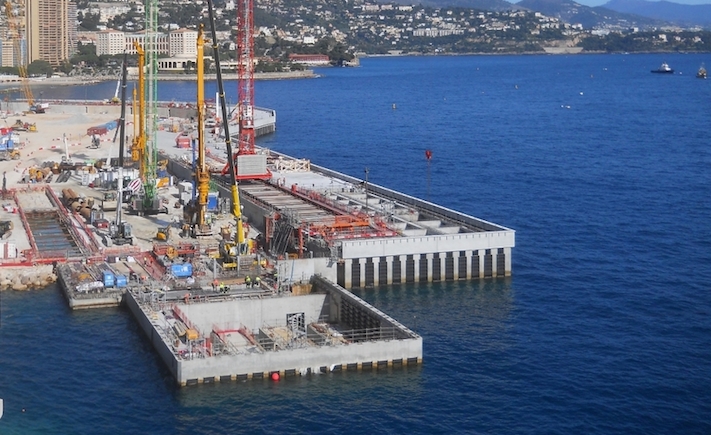Industry leaders, shipping agents, and importers are urging the Federal Government to significantly expand port automation as a means to dramatically reduce cargo delays and boost overall logistics efficiency. The current delays remain a major bottleneck, hindering trade competitiveness, driving up costs, and limiting port throughput capacity.
At a high-level roundtable held in Lagos, representatives from various sectors—including freight forwarding firms, shipping lines, and trade associations—highlighted inefficiencies in manual processing, extended clearance times, and inconsistent handling procedures as key drivers of port congestion. They called for comprehensive automation across documentation, terminal operations, and customs workflows to streamline cargo movement.

Stakeholders emphasised Nigeria’s strategic potential as a regional trade hub, particularly for transshipment and intra-African trade under the AfCFTA framework. However, they warned that unless ports operate with global standards—particularly through digital platforms—Nigeria may lose competitive advantage to regional rivals in West and East Africa.
Current port operations rely heavily on manual gate control, paper-based manifest submission, and face-to-face approvals, leading to queues of containers that frequently accumulate near berths. Freight agents voiced frustration over inconsistent communication from terminal operators and customs officials, often making clearance cycles unpredictable and extending demurrage and storage costs for importers.
Stakeholders proposed a series of automation measures. First, implementation of fully digital port community systems (PCS) to link shipping lines, terminal operators, customs, port health, and other agencies on one platform. Such systems would enable pre-arrival cargo declarations, automated fee calculations, and instant notifications—eliminating paperwork and reducing dwell times.
Second, deployment of automated gate entry systems and optical character recognition (OCR) technology to speed up container verification at entry and exit points. This would potentially reduce truck turnaround times by more than 50 percent, cutting congestion and improving timeliness.
Third, adoption of equipment automation in yards, including automated stacking cranes, RFID tracking tags, and real-time terminal visibility tools. These systems increase throughput, minimize human error, and enhance safety while supporting 24/7 cargo operations.
Crucially, port automation would also reduce corruption and rogue practices. By minimizing manual interventions, digital platforms help limit subjective decision-making and enhance audit trails—creating transparency in tariffs, charges, and clearance processes. Many stakeholders highlighted the need for all port-related agencies to operate on shared digital platforms to prevent duplication of steps and conflicting procedures.
Achieving full automation, they stressed, requires collaboration between the Federal Government, port authorities (including the Nigerian Ports Authority), terminal operators, and customs regulators. Industry representatives also called for targeted fiscal incentives—such as tax breaks or concessional funding—to accelerate automation investments by both terminal operators and logistics stakeholders.
While acknowledging infrastructure costs, participants maintained that the long-term returns are substantial. Automated ports typically increase cargo handling throughput by up to 30 percent annually, reduce demurrage penalties, and improve predictability, making Nigeria more attractive to shippers and transport firms.
A significant benefit flagged was the promotion of intermodal transport linkages. With efficient digital gate processes, cargo can move seamlessly between port terminals, inland container depots, rail corridors, and dry ports—reducing road congestion and expanding hinterland delivery options. This encourages private sector investment in inland logistics hubs, servicing Lagos and other major economic states.
Additionally, automation aligns with the Digital Economy strategy and sustainability objectives. Digital systems reduce paper usage, minimize stranded trucks, lower greenhouse gas emissions from idle vessels, and reduce idle standby charges—supporting both environmental and economic goals.
Experts at the event urged the government to begin by piloting automation modules at major ports such as Apapa, Tin Can Island, and Onne, where cargo volumes are highest. They recommended phased rollout plans that include training port workers on the use of automation tools and protocols to ensure smooth transition without job displacement.
Training and capacity building were emphasised as essential. Ports automation involves new technical skills—such as systems operation, data analytics, and automated equipment maintenance. Stakeholders recommended partnerships with technical institutes, local tech firms, and international port technology providers to upskill labor and support system adoption.
Several terminal operators and private logistics companies present at the roundtable announced preliminary moves toward pilot automation investments. These include partnerships with software providers to deploy PCS systems and agreements for OCR scanning implementations at select gates. However, they stressed that full-scale implementation demands government support and inter-agency coordination.
Industry participants concluded that automation isn’t simply a technical upgrade—it’s a strategic enabler. Streamlined functionality and reduced cargo delay times can revitalize Nigeria’s trade ecosystem, reduce importation costs, and reinvigorate export distribution. For manufacturers, faster port throughput means lower inventories and reduced production disruptions.
In summarizing the call, stakeholders urged government to establish a national Port Automation Roadmap, backed by policy clarity, industry consultation, and guaranteed funding. They stressed that sustained political commitment is essential to move Nigeria’s ports from congested delays toward digital efficiency.
If adopted, port automation could yield measurable benefits: shorter cargo dwell times, improved revenue collection, enhanced supply chain predictability, and stronger investor confidence. Ultimately, upgraded port systems would help position Nigeria as the premier trade and logistics hub in West Africa.
Support InfoStride News' Credible Journalism: Only credible journalism can guarantee a fair, accountable and transparent society, including democracy and government. It involves a lot of efforts and money. We need your support. Click here to Donate
